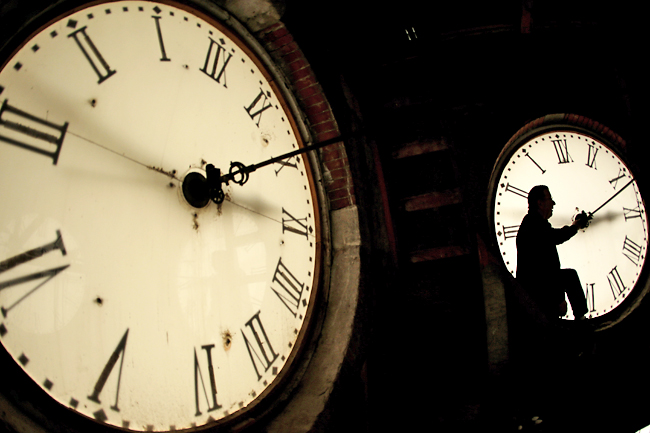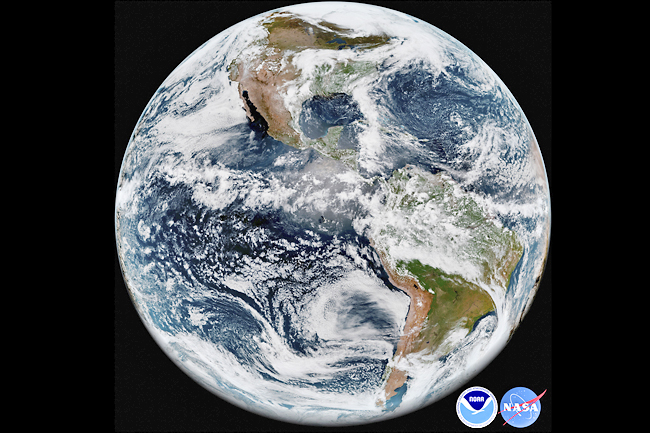AP – Earth’s changing spin is threatening to toy with our sense of time, clocks and computerised society in an unprecedented way, but only for a second.
For the first time in history, world timekeepers may have to consider subtracting a second from our clocks in a few years because the planet is rotating a tad faster than it used to.
Clocks may have to skip a second, called a “negative leap second”, around 2029, a study in the journal Nature said on Wednesday.
“This is an unprecedented situation and a big deal,” said study lead author Duncan Agnew, a geophysicist at the Scripps Institution of Oceanography at the University of California, San Diego. “It’s not a huge change in the Earth’s rotation that’s going to lead to some catastrophe or anything, but it is something notable. It’s yet another indication that we’re in a very unusual time.
Ice melting at both of Earth’s poles has been counteracting the planet’s burst of speed and is likely to have delayed this global second of reckoning by about three years, Agnew said.
“We are headed toward a negative leap second,” said Dennis McCarthy, a retired director of time for the United States (US) Naval Observatory who wasn’t part of the study. “It’s a matter of when.”
It’s a complicated situation that involves, physics, global power politics, climate change, technology and two types of time. Earth takes about 24 hours to rotate, but the key word is about.


For thousands of years, the Earth has been generally slowing down, with the rate varying from time to time, said Agnew and Judah Levine, a physicist for the time and frequency division of the National Institute of Standards and Technology. The slowing is mostly caused by the effect of tides, which are caused by the pull of the moon, McCarthy said. This didn’t matter until atomic clocks were adopted as the official time standard more than 55 years ago. Those didn’t slow.
That established two versions of time, astronomical and atomic, and they didn’t match. Astronomical time fell behind atomic time by 2.5 milliseconds every day.
That meant the atomic clock would say it’s midnight and to Earth it was midnight a fraction of a second later, Agnew said. Those daily fractions of seconds added up to whole seconds every few years. Starting in 1972, international timekeepers decided to add a “leap second” in June or December for astronomical time to catch up to the atomic time, called Coordinated Universal Time (UTC).
Instead of 11:59 and 59 seconds turning to midnight, there would be another second at 11:59 and 60 seconds.
A negative leap second would go from 11:59 and 58 seconds directly to midnight, skipping 11:59:59.
Between 1972 and 2016, 27 separate leap seconds were added as Earth slowed. But the rate of slowing was tapering off.
“In 2016 or 2017 or maybe 2018, the slowdown rate had slowed down to the point that the Earth was actually speeding up,” Levine said.
Earth’s speeding up because its hot liquid core, “a large ball of molten fluid”, acts in unpredictable ways, with eddies and flows that vary, Agnew said.
Agnew said the core has been triggering a speedup for about 50 years, but rapid melting of ice at the poles since 1990 masked that effect. – Seth Borenstein





